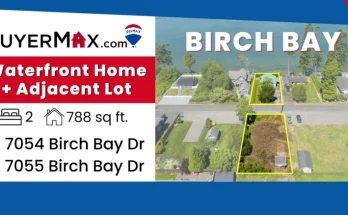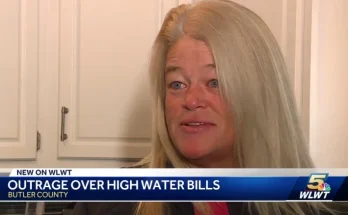
Shreveport, Louisiana is a vibrant city with a population of over 190,000 residents. The water and sewer system in Shreveport is vital for maintaining the health and safety of its inhabitants. In this article, we will provide a comprehensive guide to everything related to Shreveport’s water and sewer system.
Who Manages Shreveport’s Water and Sewer System?

The City of Shreveport’s Department of Water and Sewerage (DOWAS) is responsible for managing the water and sewer system in the city. DOWAS has been providing clean and safe water to the residents of Shreveport since 1887.
What Is the Role of DOWAS?
DOWAS is responsible for several functions, including:
- Collecting and treating wastewater
- Providing drinking water to residents and businesses
- Maintaining and upgrading the city’s water and sewer infrastructure
- Monitoring and testing the city’s water quality
- Enforcing environmental regulations related to water and sewer services
How Is Shreveport’s Water and Sewer Funded?
DOWAS is funded through user fees, grants, and loans. The fees collected from residents and businesses are used to cover the cost of operation and maintenance expenses, as well as capital improvements.
What Services Does Shreveport’s Water and Sewer System Offer?

Shreveport’s water and sewer system offers several services, including:
Drinking Water Services
DOWAS provides drinking water to more than 130,000 customers in Shreveport. The water is sourced from the Sparta aquifer and treated at the Cross Lake Water Treatment Plant. The water meets all state and federal standards for drinking water quality.
Wastewater Services
DOWAS collects and treats more than 40 million gallons of wastewater each day. The wastewater is treated at the Lucas Wastewater Treatment Plant and the South Regional Wastewater Treatment Plant.
Industrial Pretreatment Services
DOWAS provides industrial pretreatment services to more than 200 local industries. The program ensures that industrial discharges do not harm the city’s wastewater treatment facilities or the environment.
When Should You Contact Shreveport’s Water and Sewer Department?

Residents and businesses should contact DOWAS if they experience any of the following issues:
- Water leaks
- Sewer backups
- Low water pressure
- Water quality concerns
- Billing inquiries
- New service connections
How to Contact Shreveport’s Water and Sewer Department
To report an issue or make an inquiry, customers can contact DOWAS by phone at (318) 673-7600 or online at the department’s website.
Pros and Cons of Shreveport’s Water and Sewer System

Here are some pros and cons of using Shreveport’s water and sewer system:
Pros
- High-quality drinking water
- Reliable wastewater treatment services
- Affordable user fees compared to other cities in the region
- DOWAS has a good track record of environmental compliance
Cons
- Aging infrastructure may result in service interruptions or water quality issues
- Limited access to alternative water sources, such as surface water or desalination
- Some residents have reported high water bills due to leaky pipes or inaccurate meters
Alternatives to Shreveport’s Water and Sewer System
Residents and businesses in Shreveport have several alternatives to using DOWAS for their water and sewer needs. These alternatives include:
Private Wells and Septic Systems
Some residents may choose to use private wells and septic systems instead of relying on DOWAS. However, this option requires significant upfront costs for installation and may not be practical for all properties.
Rainwater Harvesting
Rainwater harvesting involves collecting and storing rainwater for non-potable uses, such as irrigation or toilet flushing. This option may be suitable for properties with ample roof space and low water demands.
Greywater Recycling
Greywater recycling involves treating and reusing wastewater generated from sinks, showers, and washing machines for non-potable uses. This option can reduce water usage and save money on water bills but requires specialized equipment and maintenance.
Step-by-Step Guide to Connecting to Shreveport’s Water and Sewer System
Connecting to Shreveport’s water and sewer system is a straightforward process that involves several steps, including:
- Contact DOWAS to request a new service connection.
- Submit an application and pay the required fees.
- Schedule an inspection of the property by DOWAS staff.
- Install any necessary pipes or fixtures to connect to the city’s water and sewer system.
- Pass a final inspection by DOWAS staff.
Comparing Shreveport’s Water and Sewer System to Other Cities
Here’s how Shreveport’s water and sewer system compares to other citiesin the region:
Baton Rouge
Baton Rouge’s water and sewer system is managed by the Department of Environmental Services. The city sources its drinking water from the Mississippi River and provides wastewater treatment services to over 250,000 customers. Baton Rouge’s user fees are slightly higher than Shreveport’s, but the city has invested heavily in upgrading its infrastructure in recent years.
Dallas
Dallas’ water and sewer system is managed by the Dallas Water Utilities (DWU). The system serves over 2 million residents and businesses in the Dallas-Fort Worth metropolitan area. DWU sources its drinking water from several lakes and reservoirs in the region and treats over 1 billion gallons of wastewater each day. Dallas’ user fees are higher than Shreveport’s, but the city offers several programs to assist low-income customers with their water bills.
Tips for Conserving Water in Shreveport
Water conservation is an important issue in Shreveport due to the city’s limited access to alternative water sources. Here are some tips for conserving water at home or in your business:
- Repair leaky pipes or fixtures promptly.
- Use low-flow showerheads and faucets.
- Install water-efficient toilets and washing machines.
- Water lawns and gardens during early morning or late evening hours to minimize evaporation.
- Use a rain barrel to collect and reuse rainwater for outdoor irrigation.
The Best Water and Sewer Contractors in Shreveport
If you need assistance with installing or repairing your water or sewer lines, here are some of the best contractors in Shreveport:
- Rooterman Plumbing
- Roto-Rooter
- Southern Quality Plumbing
- Mike Tilton Quality Plumbing Heating
- Accurate Leak Line Detection
FAQs About Shreveport’s Water and Sewer System
Q: Is Shreveport’s drinking water safe to drink?
A: Yes, Shreveport’s drinking water meets all state and federal standards for water quality.
Q: Does DOWAS offer payment assistance programs for low-income customers?
A: Yes, DOWAS offers several programs to assist low-income customers with their water bills, including the Water Assistance Program and the Senior Citizen’s Discount.
Q: How can I report a water leak or sewer backup in my neighborhood?
A: You can report a water leak or sewer backup by calling (318) 673-7600 or submitting an online request on the DOWAS website.
Q: Can I connect a private well or septic system to DOWAS’ sewer system?
A: No, DOWAS does not allow connections from private wells or septic systems to its sewer system.
Q: What should I do if I receive a high water bill?
A: If you receive a high water bill, you should first check for leaks or inaccuracies in your meter reading. If you are unable to identify the issue, contact DOWAS to request an investigation.
Conclusion
Shreveport’s water and sewer system is essential for maintaining the health and safety of its residents and businesses. While the system has its pros and cons, it generally provides reliable and affordable services to its customers. By following water conservation tips and reporting any issues promptly, we can all help ensure that Shreveport’s water and sewer system continues to serve the community well for years to come.



